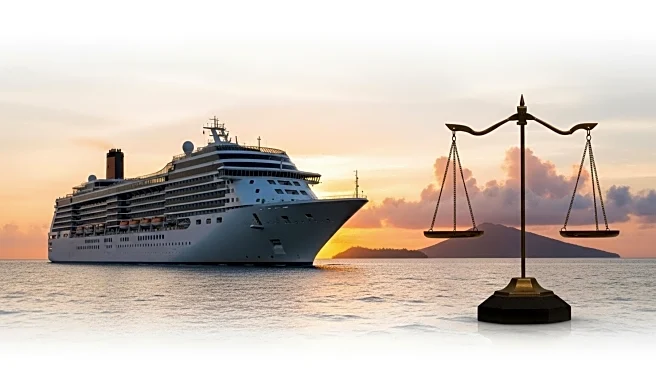What is the story about?
What's Happening?
The Cruise Lines International Association, along with other plaintiffs, has filed a lawsuit against Hawaii over the state's newly implemented 'Green Fee' tax. This tax, which increases the transient accommodations tax by 0.75% to a total of 11%, is set to apply to cruise lines starting in 2026. The fee aims to fund climate change resiliency projects and other environmental efforts. The lawsuit, filed in the District of Hawaii, argues that the tax violates federal law, specifically the U.S. Constitution's Tonnage Clause, and imposes an undue burden on cruise lines and passengers. The plaintiffs include Honolulu Ship Supply Co., Kaua'i Kilohana Partners, and Aloha Anuenue Tours LLC. They contend that the tax could significantly increase the cost of Hawaii-bound cruises, potentially deterring visitors and impacting Hawaii's cruise tourism industry.
Why It's Important?
The lawsuit highlights the tension between environmental policy and economic interests in Hawaii. The cruise industry contributes over $600 million annually to Hawaii's economy, with nearly 300,000 visitors in recent years. The new tax could affect this economic contribution by increasing costs for cruise operators and passengers, potentially leading to a decline in tourism. This case could set a precedent for how states implement environmental taxes and balance them with economic impacts. The outcome may influence other states considering similar measures and affect the broader cruise industry, which is a significant player in global tourism.
What's Next?
The Hawaii Department of the Attorney General has yet to be served the complaint and has reserved comment until it can review the lawsuit. As the case progresses, stakeholders in the cruise industry and environmental advocacy groups will likely monitor developments closely. The legal proceedings could lead to negotiations or adjustments in the tax policy, depending on the court's interpretation of federal law. The decision could also prompt other states to reconsider or refine their environmental taxation strategies.
















